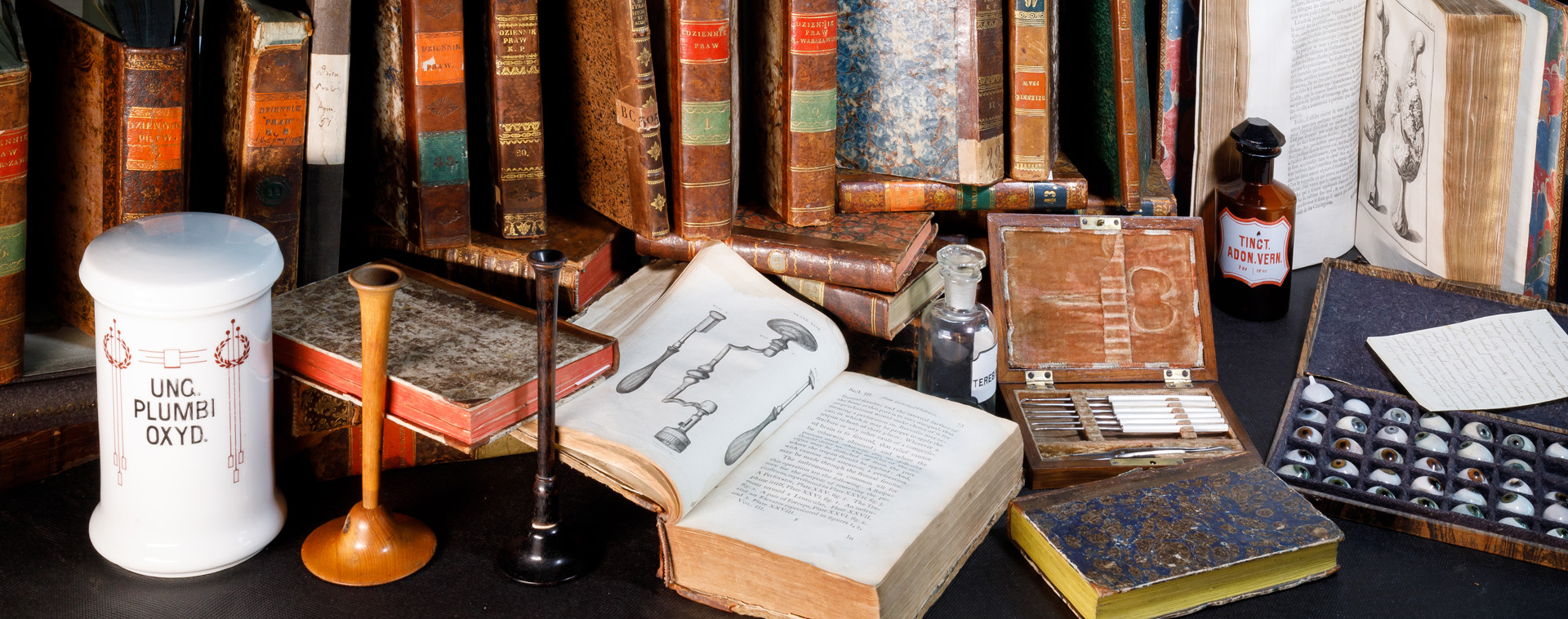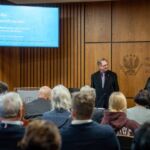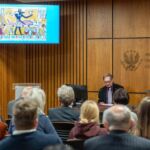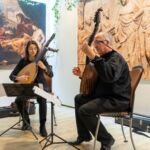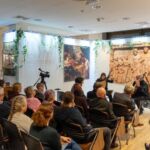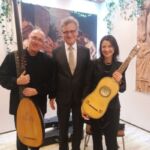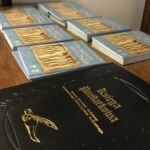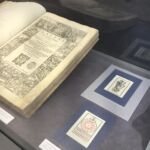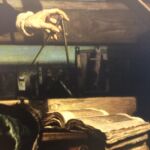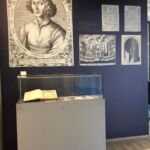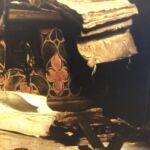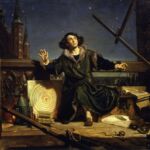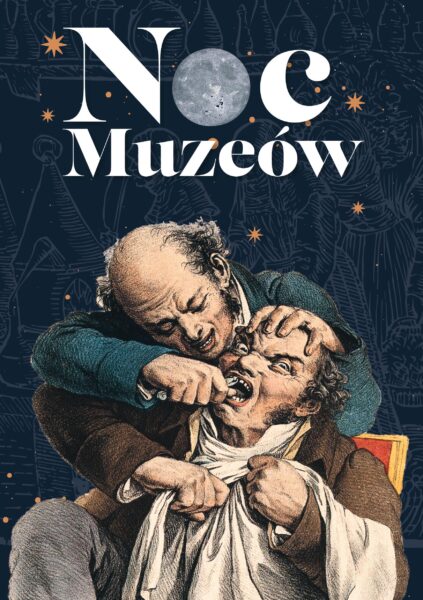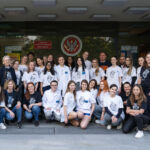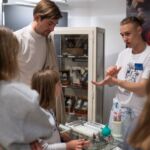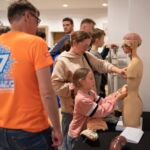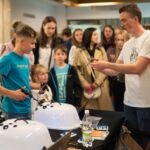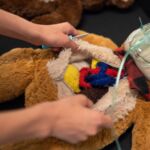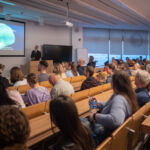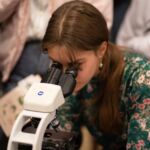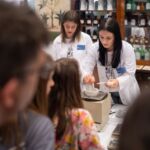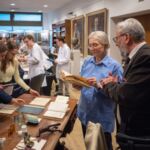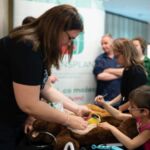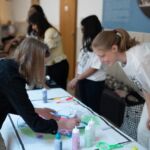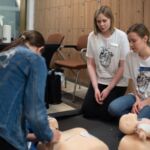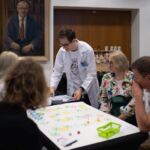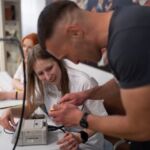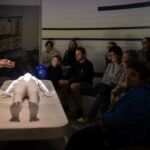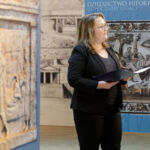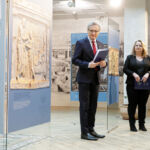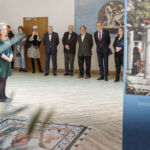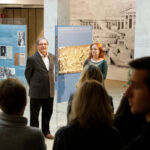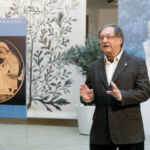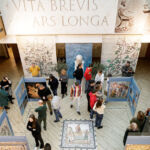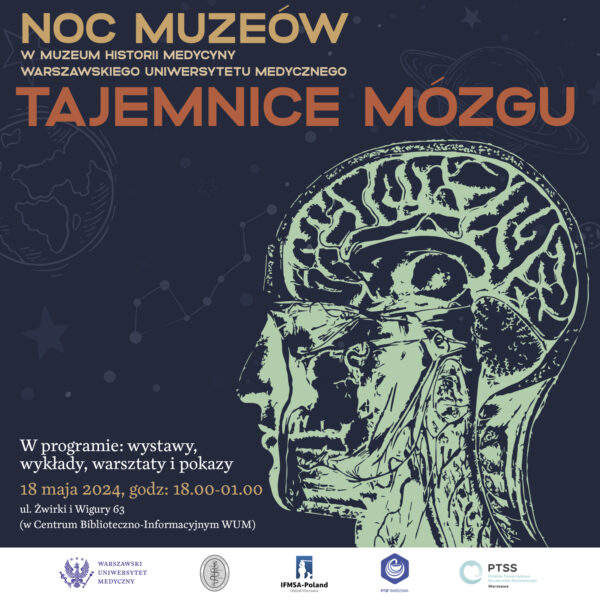
We invite to the Night of Museums on May 18’
from 18.00 to 01.00 to the MUSEUM OF THE HISTORY OF MEDICINE (Library and Information Center, ground floor and first floor)
street Żwirki i Wigury 63.
The Museum of the History of Medicine of the Medical University of Warsaw is once again participating in one of the most important museum and cultural events of 2024.
This time, the main issue we want to present is the human brain, which arouses great interest and is the subject of scientific research.
During the event titled “Secrets of the Brain”, we will reveal a glimpse of the vast knowledge about the brain. There will be an opportunity to see, among other things, an exhibition dedicated to Jerzy Choróbski, an important figure in Polish science and the founder of Polish neurosurgery.
The program will also include lectures by MUW experts.
Specialists from the Department of Psychology of the Medical University of Warsaw will conduct special educational workshops that will help our participants discover their predispositions and abilities.
The exhibition will be complemented by health prevention workshops conducted by students who will present popular science issues in their field, including: with pain relief.
Moreover, as part of the popularization of health-related issues, workshops for IFMSA students will be organized
We will also make available the modern space of the “Anatomical Theater” for everyone who wants to “Learn the secrets of the brain”.
ATTENTION: There will be a competition for those interested during the Night of Museums.
Regulations and questions will be available in the museum room on May 18 from 6:00 p.m. to 1:00 a.m.
You can win 10 museum T-shirts and 10 museum mugs.
PROGRAM
- Temporary exhibitions:
“Professor Jerzy Choróbski – creator of the first Neurosurgery Clinic in Poland”
“Secrets of the Brain”
“The Pharmacist’s Library”
“History of the Faculty of Pharmacy”
“History of the Faculty of Dentistry”
“Anatomical Theater”
“Vita Brevis Ars Longa” – 1st floor
- Lectures:
– 19.00 – “Trepanation – a short history of neurosurgery” – Professor Bogdan Ciszek
-20.00 – “How to improve brain function and memory” – MD, PhD Stanisław Szlufik
– 21. 00 – “…from a bottle of ether to complicated equipment. That is, with anesthesiology for almost two centuries” – MD, PhD Maria Turos
-22.00 – “Recipe for a happy brain” – MA, PhD Magdalena Łazarewicz
- Educational workshops:
“Mental health prevention” Specialists of the Psychology Study Center of the Medical University of Warsaw – games, quizzes and tests that will help you discover what natural abilities and predispositions your mind has.
“Get to know the human brain” – anatomy lessons conducted by students of the Medical University of Warsaw
- Stands:
“Practical pharmacy” – the effects of painkillers – students from the Polish Society of Pharmacy Students PTSF
“Dental prevention” – dentist without pain – free dental check-up carried out by students of the Faculty of Medicine and Dentistry and PTSS.
“Health under control” – IFMSA students – blood sugar level testing, blood pressure measurement, body composition and weight measurement, spirometry, laparoscopic surgery trainer, DKMS bone marrow donor registration.
